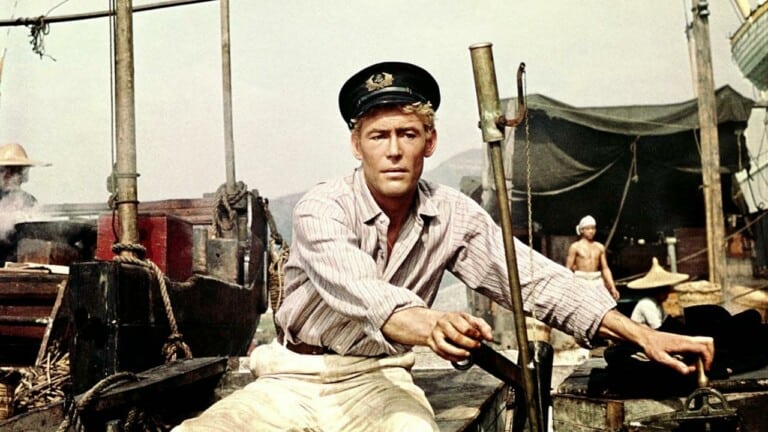Conrad was a sailor and gave us a flavour of seamanship: read ch1-20, there are segments that should not be missed.
In Youth (1828), Conrad wrote a fiction based on his first-hand experience as first mate on board a ship called the “Palestine”. He was directly involved in an incident: the Palestine caught fire and the team, including Conrad, were obliged to abandon the ship.
A trial took place and the team was cleared because they had done everything they could. In Youth, Conrad’s double was a character that he called Marlow: it was the first time Marlow was introduced. In Lord Jim, Conrad is not directly involved.
The Jeddah incident was the model of the Patna (p319-358): Conrad intertwines facts and fiction in osmosis.
“the pilgrims of an exacting faith” (p15): indicate a harsh religion, they are obliged to go to Mecca at least once in a lifetime. The voyage takes place in horrendous conditions: every deck is packed (children, women, men). People are suffering from heat and promiscuous conditions.
The team knows of other conditions: debauchery and absence of morals. There is an opposition between the East (the pilgrims) and the West (Europeans).
The “unconscious crowd”: trust the white man and the ship. Dramatic irony, the ship is everything but safe.
“Unconscious believers” seem to be doomed to die. The irony lays in the fact they are doomed to survive. They will prove to be right in their belief and will be saved in the end.
p15, paragraph 3: the lighthouse is personalized, winking and laughing at the pilgrim ship, it is the symbol of technological advancement. It is ironic since they will reach their destination.
There is a play on the situation: their faith is first mocked and then gains in value. The ship does not sink. Each sentence is loaded in meaning. The arrival of the pilgrims is compared to water flooding. In fact, this announcement does not occur: the reader has been taken in.
The Patna is a steamer: it possesses a steam engine and a sail to manoeuvre in the harbour. It is in a very bad state of repair, a rooker that should be dismantled because it is not seaworthy.
A steamer is propelled forward by a condensing engine. The steam cylinders produce energy and the condensing machine is visible on deck. The steam is produced by coal being burnt.
The deck is packed with Muslims and amid-ship are the white members: the captain, Jim, the first engineer, the second engineer, and George. Two lascars are holding the helm throughout the circumstances, we find them again at the trial. The whole ship is reduced to a deck-winch: this is a synecdoche (the whole is reduced to a part).
After the collision, Jim is convinced the ship is not going to hold down. The obstacle is never mentioned: “the thing”, “something”. Jim goes down to the lower deck and a piece of rusted iron comes down: the sea can flood the ship at any moment.
It is a hopeless situation with only 7 boats for 800 people. Against all expectations, the Patna holds out: “the safest thing was to leave it alone” (French Lieutenant, p85).
Part of fiction of the Patna :
- Conrad internationalized the crew.
- The original captain was an Englishman, not a New South Wales German.
- The Jeddah was rescued by an English vessel and not a French one.
Conrad’s aim is to make Jim’s decision hard to comprehend and to heighten the sense of moral dilemma. In the Jeddah incident, there was the mention of a storm, the pilgrims rebelled and there were a few casualties.
None of this happens with the Patna: only George dies from a heart attack. The Patna only mysteriously collided with an unexplained something on a treacherously, ominously calm sea:
“She went over whatever it was as easy as easy as a snake crawling over a stick” (Jim, Chap4 p21): a sense of the unexplainable and sense of magic.
Jim, as the son of a parson, uses a biblical image. Conrad toned down the atrocities that took place on the Jeddah and this is a central decision. He does not allow our sympathy to be aroused and makes things go against Jim.
Jim first behaves as an officer and does not recommend abandoning the ship (dignity). Contrary to the others who desperately try to escape, Jim is not a walkabout clown and appears to be superior to the others, who are only preoccupied with their own survival. Image of an officer in full command who assumes responsibility towards his passengers.
The final jump is inexplicable since it was shown that Jim was better than the others. Conrad wishes to confront the essence of the case in all its starkness.
How is it possible to account for the sudden breakdown of an officer who is trustworthy and faithful on his condition of first mate?


I REALLY LIKE THIS NOVEL BECAUSE THE STORY SEEMS TO FACE DILEMMA BY JIM AND AS A MATTER OF FACT JIM IS REALLY A COWARD I THINK
It’s hard to come by educated people about this topic, but you seem like you know what you’re talking about! Thanks.
Thanks, much appreciated.